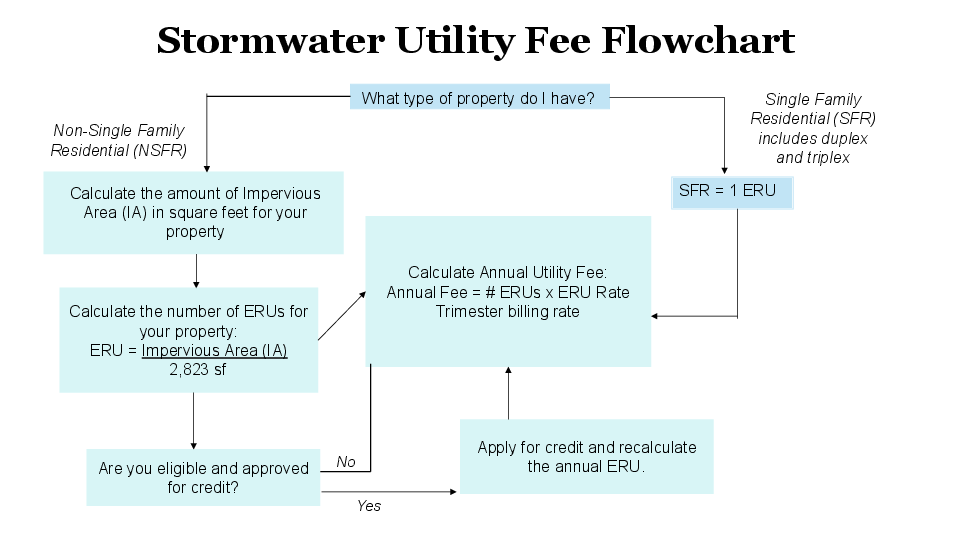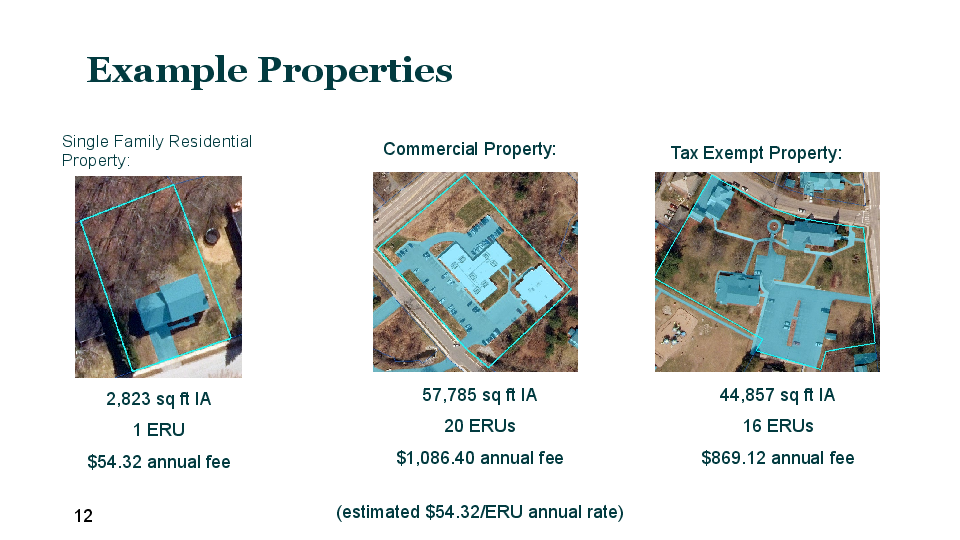Stormwater Utility
The City of Essex Junction established a stormwater utility on April 23, 2025, to ensure a fair and stable funding source for stormwater management, affecting all properties, including tax-exempt ones. With rising permit requirements and aging infrastructure increasing the general fund budget, this utility will separate stormwater fees from the general fund. Future stormwater expenses will be removed from the tax levy, aside from the City's own fee.
The stormwater utility fee is structured similarly to water or sewer fees and is based on a property’s impervious surface, which contributes to stormwater runoff. It would also be part of the utility bill sent tri-annually for sewer and water use. The Equivalent Residential Unit (ERU) has been established as the standard unit of charge. The ERU for the City is 2823 sq ft. For single-family homes, duplexes, and triplexes, the charge will be 1 ERU. Non-single-family residential property fees will be calculated based on their measured impervious area. For more detailed information, see the public hearing document below.


Stormwater Utility Ordinance
On April 23, 2025, the City Council adopted Chapter 21 Regulation of Stormwater Utility ordinance and related a credit manual for non-single-family properties. This ordinance outlines all aspects of the utility.
Stormwater User Fee Credit Manual
A credit manual was developed for non-single-family residential parcels to provide incentives for stormwater management practices. This manual will offer up to a 50% credit towards stormwater utility fees for eligible parcels.
Credits must be applied for using the applications listed below. Instructions for completing these applications can be found on the credit application forms.
For Fiscal Year 2026, which begins on July 1, 2025, credit applications are due by May 16, 2025. This deadline allows City staff adequate time to review the applications and apply approved credits to stormwater utility bills before the first round of bills is mailed in October.
After this initial deadline, credit applications will be due by January 1 of each subsequent calendar year. Please note that credits will be applied to the following fiscal year.
Combined Sewer Credit Fillable Form
Education Application Fillable Form
STP Credit Application Fillable Form
NPDES State Stormwater Permit Credit Application Fillable Form
Stormwater MS4 Credit Application Fillable Form
For projects currently under construction, a credit for the stormwater utility fee cannot be applied until the stormwater infrastructure is installed and operational. A credit application for these cases can be submitted along with the As-built information submitted to the City.
For any questions regarding the utility, contact Chelsea Mandigo, Water Quality Superintendent.
